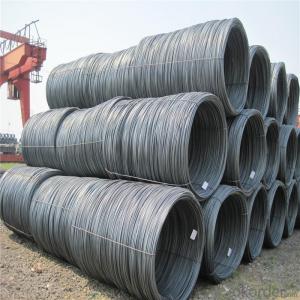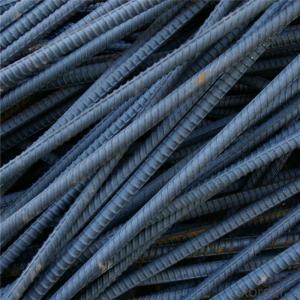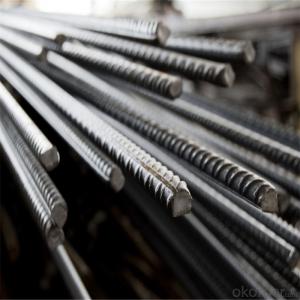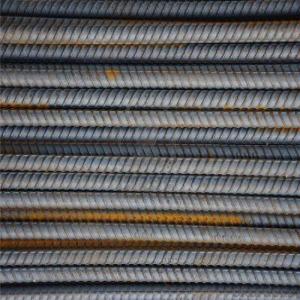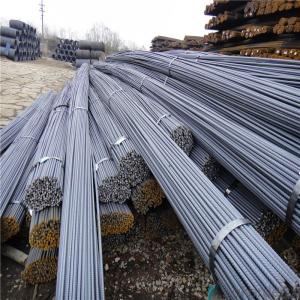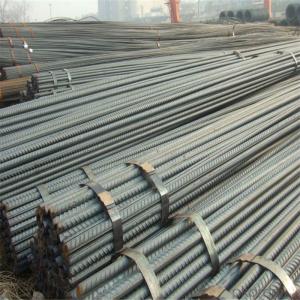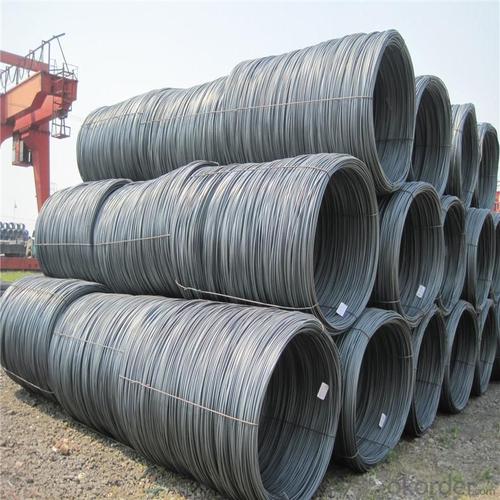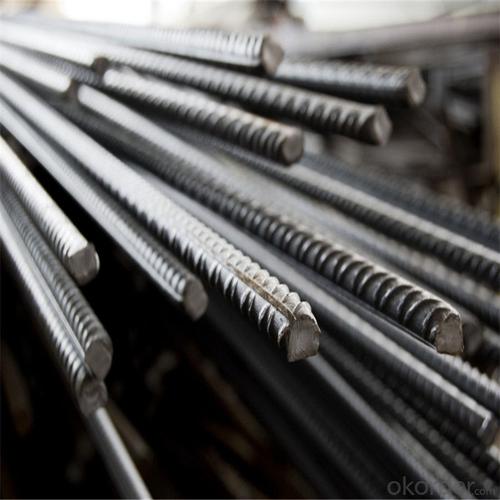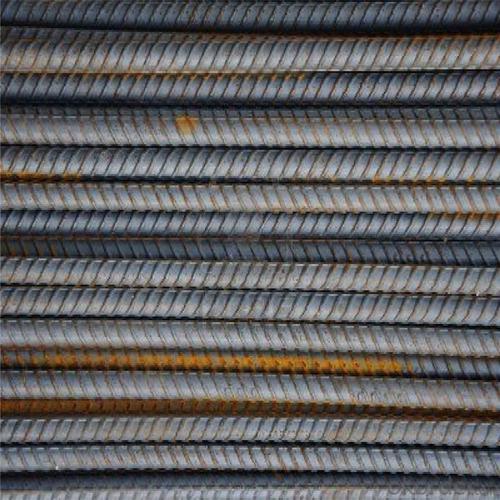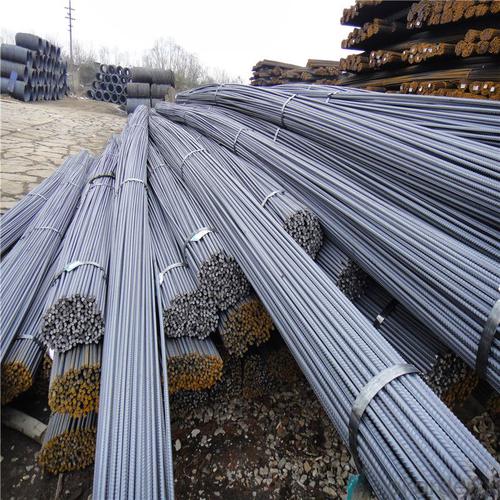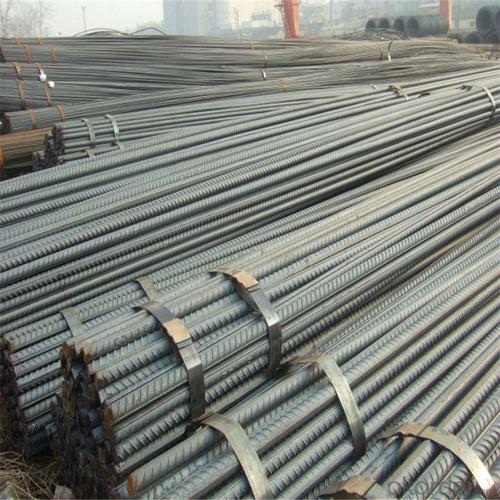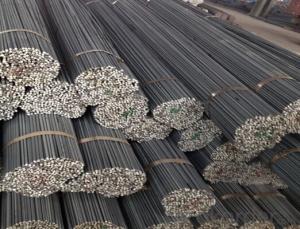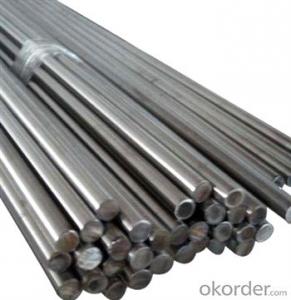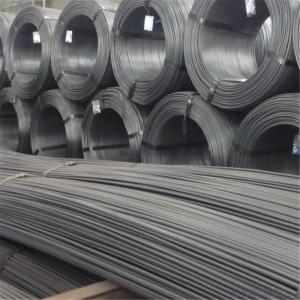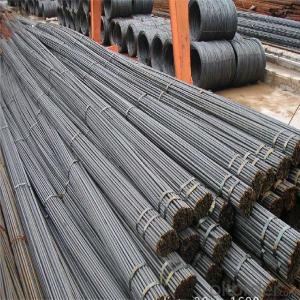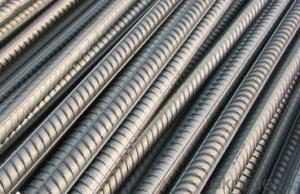Reinforcing Steel Rebar Bs4449 Grade 460B
- Loading Port:
- Tianjin
- Payment Terms:
- TT OR LC
- Min Order Qty:
- 130 m.t.
- Supply Capability:
- 500000 m.t./month
OKorder Service Pledge
OKorder Financial Service
You Might Also Like
Specification
Reinforcing Steel Rebar Bs4449 Grade 460B
Description of Reinforcing Steel Rebar Bs4449 Grade 460B
1, Diameter: 5.5mm-10mm Reinforcing Steel Rebar Bs4449 Grade 460B
10m- 40mm Reinforcing Steel Rebar Bs4449 Grade 460B
2, Length: 6m, 9m, 12m or customized
3, Standard: GB, ASTM, AISI, SAE, DIN, JIS, EN
OEM technology - send detailed technical parameters for accurate quotation.
2, Produce Process: smelt iron - EAF smelt billet - ESR smelt billet -
hot rolled or forged to get the steel round bar and plate
3, Heat Treatment: annealing, normalizing, tempering, quenching
4, Surface Treatment: Black
5, Quality Assurance: We accept third party inspection for all orders.
You can ask testing organizations such as SGS, BV, etc. to test our products before shipping.
Chemical Composition of Reinforcing Steel Rebar Bs4449 Grade 460B
Grade | Technical data of the original chemical composition(%) | |||||
Reinforcing steel bar HRB335 | C | Mn | Si | S | P | B |
≤0.25 | ≤1.60 | ≤0.80 | ≤0.045 | ≤0.045 | >0.0008 | |
Physics Capability | ||||||
Yield Strength(N/cm2) | Tensile Strength(N/cm2) | Elongation(%) | ||||
≥ 335 | ≥490 | ≥16 | ||||
Reinforcing steel bar HRB400 | C | Mn | Si | S | P | B |
≤0.25 | ≤0.16 | ≤0.80 | ≤0.045 | ≤0.045 | 0.04-0.12 | |
Physics Capability | ||||||
Yield Strength(N/cm2) | Tensile Strength(N/cm2) | Elongation(%) | ||||
≥ 400 | ≥ 570 | ≥ 14 | ||||
Products Show of Reinforcing Steel Rebar Bs4449 Grade 460B
Company Information
CNBM International Corporation is the most important trading platform of CNBM group.
Whith its advantages, CNBM International are mainly concentrate on Cement, Glass, Iron and Steel, Ceramics industries and devotes herself for supplying high qulity series of refractories as well as technical consultancies and logistics solutions.


F A Q
1, Your advantages?
professional products inquiry, products knowledge train (for agents), smooth goods delivery, excellent customer solution proposale
2, Test & Certificate?
SGS test is available, customer inspection before shipping is welcome, third party inspection is no problem
3, Factory or Trading Company?
CNBM is a trading company but we have so many protocol factories and CNBM works as a trading department of these factories. Also CNBM is the holding company of many factories.
4, Payment Terms?
30% TT as deposit and 70% before delivery.
Irrevocable L/C at sight.
5, Trading Terms?
EXW, FOB, CIF, FFR, CNF
6, After-sale Service?
CNBM provides the services and support you need for every step of our cooperation. We're the business partner you can trust.
For any problem, please kindly contact us at any your convenient time.
We'll reply you in our first priority within 24 hours.
- Q: How does special steel contribute to the machinery manufacturing industry?
- Special steel plays a vital role in the machinery manufacturing industry as it offers enhanced strength, durability, and resistance to wear and corrosion. Its unique properties allow for the production of high-performance machinery components, such as gears, shafts, bearings, and cutting tools. Special steel also enables manufacturers to create machines that can operate in extreme conditions, handle heavy loads, and deliver superior performance, ultimately increasing productivity and efficiency in the industry.
- Q: Can special steel be used in the defense sector?
- Yes, special steel can be used in the defense sector. Special steel refers to alloys or compositions that are specifically designed to possess certain properties, such as high strength, hardness, resistance to corrosion, or heat resistance. These properties make special steel suitable for various defense applications, including the construction of armored vehicles, naval vessels, aircraft, and weaponry. In the defense sector, special steel can be used to manufacture components and structures that require exceptional strength and durability. For example, it can be used in the production of armor plates for tanks and armored vehicles, which need to withstand high impact and ballistic threats. Special steel can also be utilized in the construction of naval vessels, where it provides resistance to corrosion and enhances the overall structural integrity. Furthermore, special steel is crucial in the defense industry for the manufacturing of aircraft parts and weaponry. Aircraft components, such as landing gear, engine parts, and structural elements, require high-strength materials to ensure safe and reliable operation. Special steel alloys can provide the necessary strength and resistance to extreme conditions, such as high temperatures and pressures, making them ideal for these applications. Moreover, special steel can be used in the production of various types of weapons, including firearms and blades. Its excellent strength and hardness properties make it suitable for manufacturing gun barrels, bulletproof vests, and knives used by military personnel. In summary, special steel is highly valued in the defense sector due to its exceptional properties, including strength, hardness, corrosion resistance, and heat resistance. It finds extensive applications in the construction of armored vehicles, naval vessels, aircraft, and weaponry, ensuring the safety, durability, and effectiveness of military equipment.
- Q: How does special steel ensure product traceability?
- Special steel ensures product traceability through various measures and processes implemented throughout its production and supply chain. Firstly, special steel manufacturers maintain detailed records of the production process, including the source of raw materials, the specific production techniques used, and the testing and inspection procedures conducted at each stage. These records allow for complete traceability, as they provide a clear history of each product from its inception to the final product. Special steel manufacturers also implement robust quality control systems, which include unique identification codes or markings assigned to each product. These codes help in tracking the product throughout its life cycle, enabling easy identification and traceability. In addition, special steel manufacturers often rely on advanced technology systems such as barcode scanning, radio frequency identification (RFID), or blockchain to track and trace their products. These systems enable real-time monitoring and recording of product movements, ensuring accurate traceability and transparency. Furthermore, special steel manufacturers maintain strong relationships with their suppliers and customers, ensuring that the entire supply chain is transparent and traceable. They collaborate closely with suppliers to validate the origin and quality of raw materials, and they work closely with customers to provide them with detailed information about the product's manufacturing process and its journey through the supply chain. Overall, special steel manufacturers prioritize product traceability by implementing strict record-keeping systems, advanced technology solutions, and maintaining transparent relationships with suppliers and customers. These measures not only ensure the quality and reliability of the special steel products but also provide customers with assurance regarding the origin and authenticity of the product.
- Q: What are the common challenges in machining special steel?
- Machining special steel can present several common challenges that need to be effectively addressed in order to achieve desired results. One of the primary challenges in machining special steel is its high hardness and toughness. Special steels are often alloyed with various elements to enhance their properties, making them harder and more resistant to wear and corrosion. This hardness can cause increased tool wear and reduced tool life, requiring the use of specialized cutting tools and techniques. Another challenge in machining special steel is its low thermal conductivity. Special steels are known to have poor heat dissipation properties, leading to the accumulation of heat during the machining process. This heat buildup can cause thermal deformation, leading to dimensional inaccuracies and poor surface finish. Proper cooling and lubrication techniques, as well as appropriate cutting speeds and feeds, are crucial to overcome this challenge and prevent thermal damage. Additionally, special steels often have complex microstructures due to their alloying elements, which can result in uneven material removal and surface finish. These microstructural variations can make the machining process more unpredictable and challenging. Careful selection of cutting parameters, tooling, and machining strategies is necessary to ensure consistent and accurate results. Furthermore, some special steels may exhibit work hardening tendencies during machining. This means that as the material is being cut, it becomes harder and more resistant to further cutting. This work hardening can lead to increased cutting forces, tool wear, and poor surface finish. Utilizing appropriate cutting speeds, feeds, and tool geometries can help mitigate this challenge and prevent work hardening. Finally, special steels often come with higher manufacturing costs due to the complexity of their composition and the need for specialized tooling and equipment. The selection of suitable cutting tools, fixtures, and machining processes may require additional investment and expertise. Therefore, understanding the specific characteristics and challenges of machining special steel is crucial to ensure efficient and cost-effective production.
- Q: How does special steel contribute to the thermal conductivity of products?
- Special steel contributes to the thermal conductivity of products by having a higher thermal conductivity compared to other materials. This means that when special steel is used in the production of products, it allows for efficient transfer of heat, resulting in better heat distribution and dissipation.
- Q: How does special steel contribute to the manufacturing of fasteners?
- Special steel contributes to the manufacturing of fasteners by providing higher strength, durability, and corrosion resistance compared to regular steel. This allows fasteners to withstand heavy loads, vibrations, and harsh environmental conditions, ensuring their longevity and reliability in various applications. Additionally, special steel can be tailored to specific requirements, enabling the production of fasteners with precise dimensions, shapes, and surface finishes, thereby enhancing their performance and compatibility with different components and structures.
- Q: Can special steel be used in the semiconductor manufacturing industry?
- Yes, special steel can be used in the semiconductor manufacturing industry. Special steel alloys, such as stainless steel and tool steel, are often used in the construction of semiconductor equipment and components. These steels are chosen for their high strength, corrosion resistance, and thermal stability, which are essential properties for withstanding the harsh environments and processes involved in semiconductor manufacturing. Additionally, special steel can be engineered to have low levels of contamination, making it suitable for applications where purity is crucial, such as in cleanroom environments.
- Q: What are the different non-destructive testing techniques used for special steel?
- There are several non-destructive testing (NDT) techniques that are commonly used for special steel to ensure its quality and integrity without causing any damage. These techniques are essential in industries where special steel is used, such as aerospace, automotive, and construction, to ensure that the material meets the required specifications and standards. Some of the commonly used NDT techniques for special steel are: 1. Ultrasonic Testing (UT): This technique involves the use of high-frequency sound waves to detect internal flaws, such as cracks, voids, or inclusions, in special steel. UT is highly effective in detecting subsurface defects and is widely used due to its versatility and accuracy. 2. Magnetic Particle Testing (MT): MT is a technique that uses magnetic fields and iron particles to detect surface or near-surface defects in special steel. It is particularly useful in identifying defects like cracks, seams, or laps, as the magnetic particles will accumulate at these locations, making them visible under proper lighting conditions. 3. Liquid Penetrant Testing (PT): PT is a widely-used method for detecting surface defects in special steel. It involves applying a liquid penetrant to the surface of the material, which seeps into any surface cracks or defects. After a specified time, the excess penetrant is removed, and a developer is applied to make the defects visible. 4. Eddy Current Testing (ET): ET utilizes electromagnetic induction to detect surface or near-surface defects in special steel. It is particularly useful in detecting cracks, corrosion, or metal loss in conductive materials. ET is a fast and accurate method, making it suitable for high-speed production environments. 5. Radiographic Testing (RT): RT involves the use of X-rays or gamma rays to examine the internal structure of special steel. It can detect various defects, including porosity, inclusions, and cracks. RT provides detailed images that help identify the location, size, and severity of defects. 6. Visual Testing (VT): VT is a simple yet crucial technique that involves a visual examination of the surface of special steel. It helps identify surface defects like scratches, dents, or corrosion. Although VT is not as sensitive as other NDT techniques, it is often used as a preliminary inspection method. Each of these non-destructive testing techniques has its own advantages and limitations. The selection of the appropriate technique depends on factors such as the type and size of the special steel, the required inspection depth, and the specific defects that need to be detected. By using a combination of these techniques, manufacturers and inspectors can ensure the quality and reliability of special steel products.
- Q: Can special steel be used in the solar panel manufacturing industry?
- Yes, special steel can be used in the solar panel manufacturing industry. Special steel, such as stainless steel or high-strength steel, is often utilized in the construction of solar panel frames, mounting structures, and other supporting components due to its durability, corrosion resistance, and mechanical properties.
- Q: Can special steel be used for medical implants?
- Yes, special steel can be used for medical implants. Certain types of stainless steel, such as 316L, are commonly utilized in the manufacturing of medical implants due to their excellent biocompatibility, corrosion resistance, and mechanical properties.
Send your message to us
Reinforcing Steel Rebar Bs4449 Grade 460B
- Loading Port:
- Tianjin
- Payment Terms:
- TT OR LC
- Min Order Qty:
- 130 m.t.
- Supply Capability:
- 500000 m.t./month
OKorder Service Pledge
OKorder Financial Service
Similar products
Hot products
Hot Searches
Related keywords
